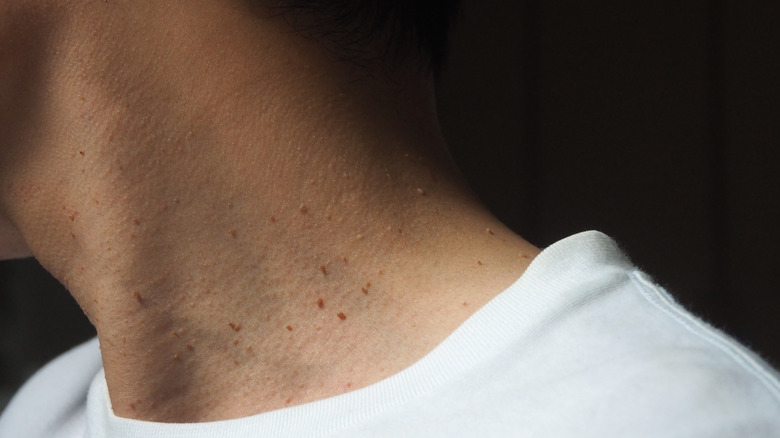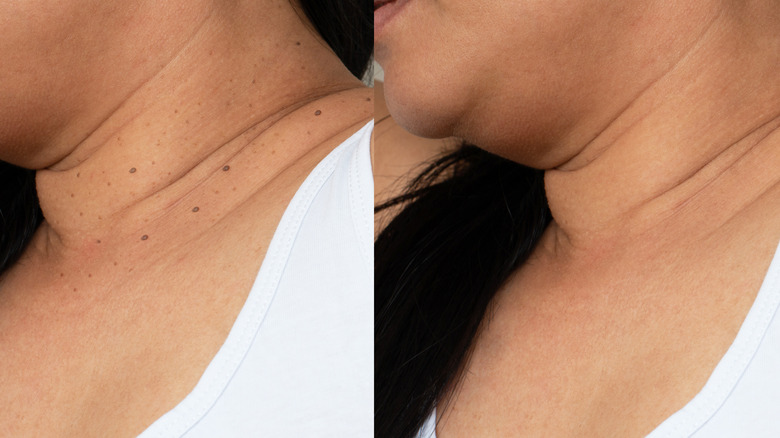Can Skin Tags Be Cancerous?
The exact cause of the formation of skin tags is unknown, according to the Mayo Clinic. Even so, as many as 46% of Americans are reported to have skin tags (via Dana-Farber Cancer Institute). Commonly seen amongst adults past middle-age, people with diabetes, overweight individuals, and those who are pregnant, skin tags are flesh-colored bumps attached to the skin by a thin stalk. Frequently located on the neck or armpits, Healthline adds that skin tags can also be found on areas of the groin, eyelids, or breasts.
Skin cancer occurs when malignant cells develop within skin tissue. Experts at the Dana-Farber Cancer Institute state that while skin tags and skin cancer growths may share some similarities in their makeup, they are not one and the same. Made up of fibers, ducts, nerve and fat cells, and a skin covering, skin tags may look similar to a tumor in appearance, yet they are noncancerous.
Professional skin tag removal options
Because skin tags themselves are non-cancerous, experts at the Dana-Farber Cancer Institute say the likelihood of a skin tag becoming cancerous is low. Yet any observed changes in color or shape of the skin tag should be discussed with a dermatologist. The Mayo Clinic reports that after professional removal of a skin tag, a pathology lab can help determine whether or not skin cancer cells may be present.
While treatment for a skin tag generally isn't necessary, some may opt for their removal for cosmetic reasons or if they experience any related discomfort due to continuous rubbing (via Healthline). Professional removal methods can include surgery, electrosurgery, or cryosurgery. For cryosurgery, the skin tag is frozen off, while electrosurgery implements heat removal using an electric current. It is important not to take skin tag removal into your own hands. Using at-home methods to cut a skin tag away from the skin can increase your risk for bleeding, scarring, or tissue damage. Be sure to consult with a doctor if you have concerns related to skin tags or any other skin issues.


